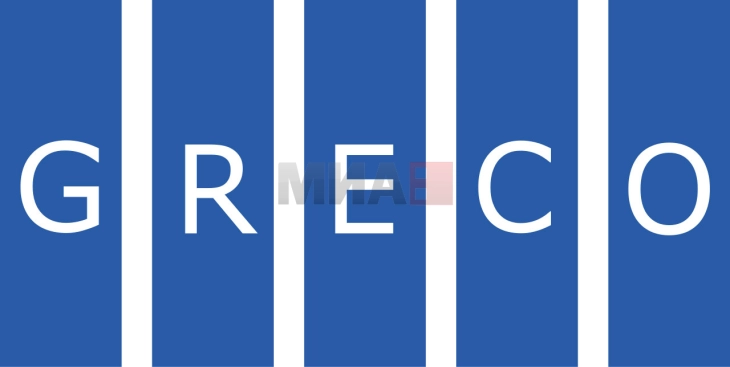GRECO report: Thirteen of twenty-three 2019 recommendations satisfactorily implemented by N. Macedonia
- North Macedonia has satisfactorily implemented thirteen of the twenty-three recommendations contained in the Fifth Round Evaluation Report. Of the remaining recommendations, nine have been partly implemented and one has not been implemented, said the Group of States against Corruption (GRECO) in its Second Compliance Report published Wednesday.
- Post By Angel Dimoski
- 12:01, 18 October, 2023

Brussels, 18 October 2023 (MIA) – North Macedonia has satisfactorily implemented thirteen of the twenty-three recommendations contained in the Fifth Round Evaluation Report. Of the remaining recommendations, nine have been partly implemented and one has not been implemented, said the Group of States against Corruption (GRECO) in its Second Compliance Report published Wednesday.
In the report, GRECO notes that North Macedonia is “not in sufficient compliance” with the recommendations contained in the Fifth Round Evaluation Report and asks the Head of Delegation of North Macedonia to provide a report on the progress in implementing the outstanding recommendations as soon as possible, however - at the latest - by 30 June 2024.
According to MIA’s Brussels correspondent, the Second Compliance Report assesses the measures taken by the authorities of North Macedonia to implement the recommendations issued in the 2019 Fifth Round Evaluation Report on North Macedonia, after GRECO published the First Compliance Report in 2021.
GRECO’s Fifth Evaluation Round deals with "Preventing corruption and promoting integrity in central governments (persons entrusted with top executive functions - PTEF) and law enforcement agencies (LEA)".

According to GRECO, several positive developments have been noted with respect to top executive functions (PTEFs), such as the introduction of integrity risk assessments and regular evaluations of the impact of integrity measures in central government, and the strengthening of the resources of the State Commission for the Prevention of Corruption (SCPC), which, the report notes, are not yet at their full operational capacity.
“That said, the SCPC has continued to play a most proactive role in providing leadership to the anti-corruption fight, including through its monitoring and advisory tasks. Additional guidance documents have been issued for PTEF regarding gifts, lobbying and the management of conflicts of interest. Members of government have been trained on the Code of Ethics, conflicts of interest and other integrity issues,” says the report.

GRECO notes that the oversight system of property and interests declarations has been enhanced, including through the development of new software allowing more efficient crosschecks of data.
“More efforts are required to assess the adequacy (effectiveness, proportionality, and dissuasiveness) of the current system of sanctions for conflicts of interest and other integrity violations,” adds the report.
With respect to law enforcement agencies (police), the report states there is also on-going progress. Noting that amendments to the Law on Internal Affairs and to the Law on Police were introduced in April 2022.
“They provide, inter alia, for the obligation to submit asset and interests declarations for all employees of the Ministry of the Interior, a ban on employees being members of a political party or a body of a political party, a new integrity test – which efficacy is yet to be assessed in practice, and the establishment of objective and professional criteria for the appointment of the Director of the Public Security Bureau (head of the police),” states the report.
According to the report, a review of corruption vulnerabilities and risks in the police has been carried out. However, it notes, additional action appears necessary to step up internal and external oversight mechanisms of the police, and to ensure application not only in law, but also in practice.
“GRECO looks forward to receiving updates on how the newly introduced/planned measures to protect whistleblowers have substantially strengthened the implementation of the legislative framework in practice, including through disclosure patterns,” notes the report.
Photo: GRECO/MIA Archive







